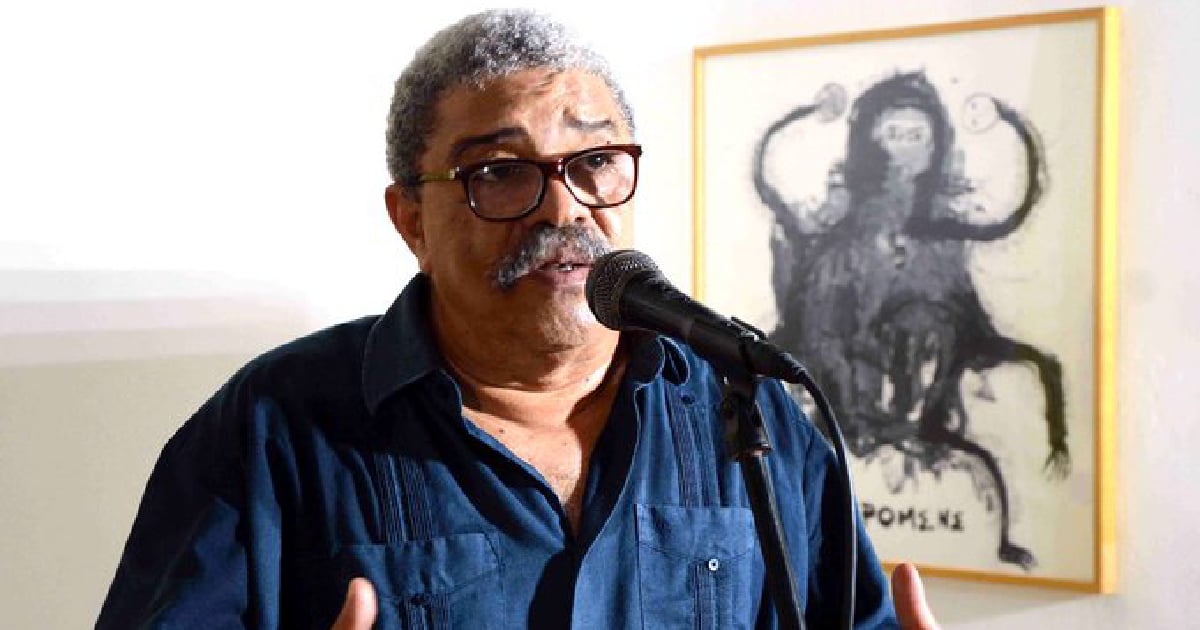
With a long service record in the Cuban regime's media, journalist and writer Pedro de la Hoz passed away this Wednesday in Havana, at the age of 71, after a tough battle against cancer.
According to the official newspaper Granma, the National Journalism Award José Martí dedicated more than three decades of his life to his cultural writing, while highlighting his courage in the fight against the illness that afflicted him.
From the social network Facebook, the president of Casa de las Américas, Abel Prieto, extended condolences to the family and friends of the also cultural critic, who served as vice president of the Union of Writers of Cuba and led the Aponte Commission of that organization until the end of his days.
The brilliant journalist and critic Pedro de la Hoz has passed away. From the Casa de las Américas, we send our solidarity and embrace to his wife Virginia, to his entire family, to his colleagues at the Presidency of UNEAC and UPEC. We will miss Pedro's sharp, always anti-colonial, gaze on cultural processes. Rest in peace, brother,” details the post by the former Minister of Culture.
Throughout his career, he was involved in the founding of the newspaper 5 de Septiembre in Cienfuegos. Later, he worked at Vanguardia in Villa Clara, where he founded the cultural supplement "Huellas," and eventually joined the official organ of the Communist Party of Cuba.
De la Hoz considered Granma his second home. Without leaving his job at the newspaper, he became an advisor to Armando Hart around 1994, and the first director of the magazine Artecubano, of the National Council of Plastic Arts. As part of the chapter of the Network in Defense of Humanity, he participated in forums held in Rome, Caracas, San Salvador de Bahía, and Sao Paulo," exposed the Cubadebate portal.
In addition to journalism, his work spanned musical, television, and entertainment production, as well as matters related to cultural policy, with controversial texts against Cuban artists who denounced the government of the island in the European Parliament or his strong stance against reggaeton.
Born in Cienfuegos in 1953, one of his many controversies was his participation in the panel that criticized the documentary "La Habana de Fito," directed by Juan Pin Vilar, when it was shown on Cuban television.
The film, which was circulated on that platform in an unauthorized version by the author, was preceded by the attacks that De La Hoz and the rest of the guests launched on the work and its creator without the right to reply, 14ymedio recalled.
He signed dozens of books, including Africa in the Cuban Revolution; Like the first day; Durban, ten years later; Hotel Nacional de Cuba, revelations of a legend; Fidel and Mandela.
Throughout his career, he received multiple recognitions from official institutions, such as the National Prize for Cultural Journalism José Antonio Fernández de Castro (1999) and the Jorge Enrique Mendoza Print Press Award (2009), the Replica of Máximo Gómez's Machete (2022), Master of Youth, by the AHS in 2023, the Distinction for Cuban Culture (1996), and the Alejo Carpentier Medal (2019).
What do you think?
COMMENTFiled under: